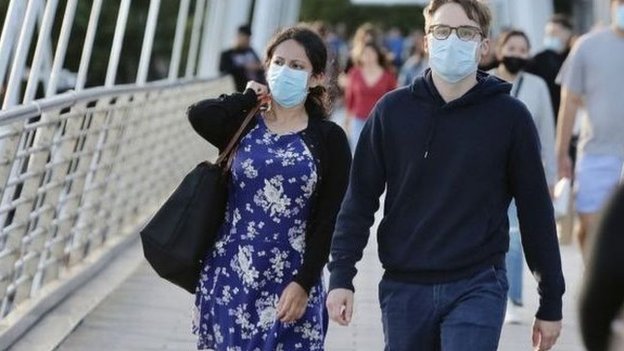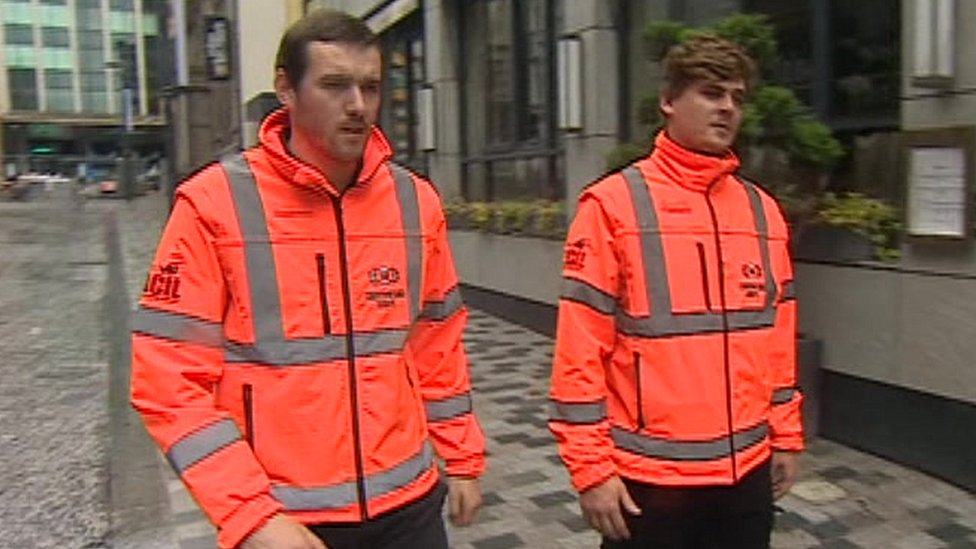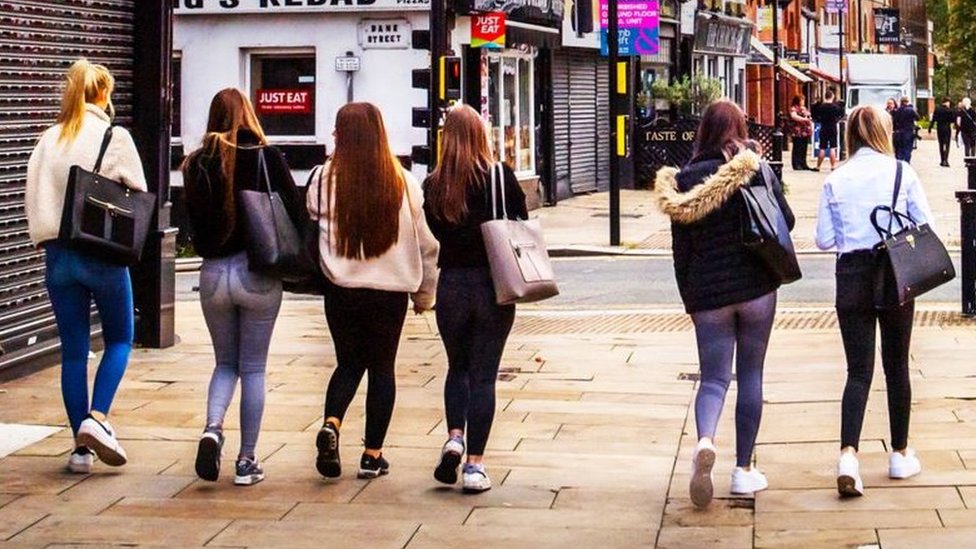You can now follow the latest news for free through our Instagram account
Click here to subscribe
—
Prime Minister Boris Johnson said that bodyguards will be deployed in towns and city centers in England to help ensure social distancing rules are followed. Some have called them “Marshallat Covid” to denote their role in combating this disease.
Sentinels (Marshals) have already been used in Leeds and Cornwall during the coronavirus pandemic.
However, these plans were criticized, and Conservative Representative Steve Baker said, “These plans will transform every public place in Britain into the equivalent of passing through airport security.”
So who are those we refer to as Covid guards, and what are their powers?
what is the point?
British Prime Minister Boris Johnson said the government and the public wanted to see “stronger enforcement of social distancing rules”.
In order to achieve this, Johnson said that Covid guards will be deployed, and a registry will be created for environmental health officers, who can be used by city councils to obtain support in this regard.
He added:
Places of hospitality (bars, restaurants, cafes … etc.) will be legally obligated to record the contact details of each visitor and keep them for a period of 21 days.
• Accommodations that do not follow Covid safety guidelines will be fined
• Local authorities will be supported to make greater use of the current authorities to close places that violate social distancing rules
• Police will have new powers from September 14 to disperse and fine groups of more than 6 people.
MMN.C.TUniverse “Covid guards“؟
The government said the guards could be either volunteers or current members of municipal council employees.
“Any new responsibilities of councils in this area should be fully funded,” said the Local Government Association (LGA) (which includes the country’s municipal councils), but no funding has been announced by the government.
The Ministry of Housing, Communities and Local Government told the BBC that some areas in the country were already employed by guards, indicating that it would look at other places that need them.
Leeds City Council told the BBC that it had assigned 6 night watchmen “who remained on duty for four weeks, but they did not have any enforcement powers to enforce social distancing rules.”
The council said that these guards “were welcomed positively by our companies as a necessary and effective matter in supporting the reopening of the economy in the evening and at night safely.”

And in Cornwall, street guards were deployed last July to Camborne, Hellston, Newquay, Ridroth, St Austell, St. Ives and Truro.
The council said they would be present during the busiest time of the day “to provide friendly assistance and guidance to those who visit and work” in the area.
What are their powers?
The government has yet to specify the details of what the guards will do, and says these decisions will be a matter of local authorities.
In areas where guards have already worked, they have done things like offer hand sanitizer and masks, answer questions and explain social distancing guidelines to members of the crowd.


The guards do not have the power to impose social distancing rules or impose fines on anyone who violates these rules.
But the government says they can contact the police if there is a need to enforce and enforce an action.
Who will enforce the hospitality rules?
Johnson spoke of the need for stricter enforcement of social distancing rules in hospitality venues such as bars and restaurants.

It was up to local authorities and the Public Health and Safety Administration (HSE) to regulate these facilities, but there were concerns about the lack of resources.
The data provided by the Public Health and Safety Administration shows that in the period between the start of the epidemic in March and September 6:
• 14,934 surprise inspections were carried out
• Formal measures were taken in 2,541 cases
• 2034 verbal advice, 432 written correspondence, and 75 executive notices were issued
To bolster this work, the government announced that it would create a registry of environmental health officers so that local councils could summon them, but it has yet to disclose further details.
The Local Government Union (the Municipal Councils Union) said, “Given the shortage of environmental health officers, it is positive that the government has committed to providing a record in this regard.”
Topics that may interest you:
– .


